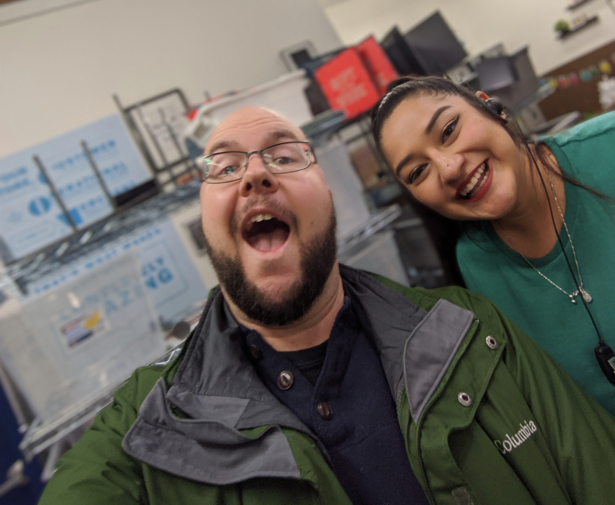
Don’t Just Read This, Do Something!
Are you letting good feelings get in the way of doing good?
On Sunday, the New York Times published an article in their Style section examining the idea that good deeds that gain widespread recognition or even go ‘viral’ may have an unintended effect: “Individual acts of kindness don’t solve systemic problems—in fact, they can do harm by glossing over deeper issues,” according to some critics.
At Good Turns, we’re committed to the idea that a flow of good news can not only help people feel better about the world, but encourage readers to do good deeds of their own. In fact, we’ve reported on studies that support this idea: good deeds are, in fact, contagious. But there is an aspect of the Times’s coverage that’s important to be aware of.
The argument, as the Times explains it, runs like this: reading about an act of kindness performed by someone else can give you the sense that all’s well with the world, when in fact that act of kindness may be an indication that something is very wrong.
“It’s not enough to bask in the warm glow of someone else’s act of kindness; every one of us needs to be out there doing good work of our own”
Take the issue of access to a college education. For many poor or under-represented communities, just applying to college may be a daunting prospect. (The process is notoriously difficult even for more affluent families.) But through the work of people like Amy Morgenstern, who was featured recently on Good Turns, more underprivileged young people are getting a chance to get a higher education.
It’s a great story, but what it doesn’t address is the fact that Morgenstern’s services are needed because an inequality exists: when it comes to education in the U.S., the playing field isn’t as level as one might hope. It’s great to help more kids apply to college who wouldn’t otherwise be able to do so, and it’s important to be able to address problems at the level of the individual. But it is sometimes possible to miss the forest for the trees. The big picture here is that the college application process is skewed in favor of people who already have money and education: college coaching is expensive, applications are complex, the entire process takes time that a busy working parent (especially if they’re a single parent) may not have—and that’s before an applicant is even considered, which is a process that is said to have its own set of shortcomings (not to mention the recent college admissions scandal that has been making headlines).
So while Morgenstern’s gesture is worthy of note, it shouldn’t be taken as an indication that the bigger problem has been solved. And it’s important to remember that while reading Good Turns. It’s not enough to bask in the warm glow of someone else’s act of kindness; every one of us needs to be out there doing good work of our own, as well as looking for ways we can address the deeper problems we see around us, whatever those may be. Not everyone is in a position to address those problems head-on, of course, but pretty much anyone can write a letter to their representative, which is still one of the best ways for a private citizen to get their voice heard and influence the legislative process.
Whatever you can manage to do, we’ll continue to celebrate the small acts of kindness that help make the world a better place (no matter what the New York Times has to say about it). But we may also take the opportunity, on occasion, to remind you that you can have an impact at a bigger level as well. There will always be much to be done, but sometimes all we can ask for is that little extra gesture of kindness. You won’t be making it alone.
Photo courtesy of Flickr user Garry Knight
Posted July 23, 2019





